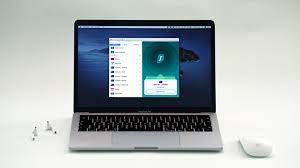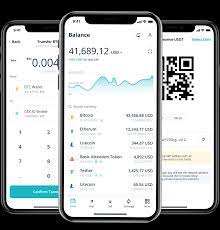If you’re big on internet security, you probably have a VPN. These are great for encrypting your online data and keeping you safe while surfing, but what if your VPN accidentally gets disconnected, or you just turn it off for a while? Is deactivation too insignificant, or does it put you at risk?
What happens when your VPN gets disconnected?
VPNs require a stable Internet connection in order to send your data to remote servers for encryption and IP masking. So, if a virtual private network experiences connectivity issues or your bandwidth is not enough for your data to reach the server, you can easily get disconnected without even realizing it.
Of course, you can also intentionally disconnect from your VPN. The slow connection speed that comes as a result of using a VPN can be frustrating at times, so you can sometimes turn it off to watch a movie without buffering or download a file without waiting for a long time.
It’s easy to assume that deactivating your VPN for a while won’t do any harm, as you know you’ll be back and reconnecting soon. But in reality it is not so.
The moment you disconnect from your VPN while using the Internet, your IP address and all your online activity are immediately visible to your Internet Service Provider (ISP). So, even if you have been hiding your IP and activity for years with your VPN, this element of privacy is gone as soon as your VPN is disconnected.
Additionally, you become very vulnerable to malicious online activity without your VPN, as your data is now more readily available to cybercriminals. This is a big problem if you are using a VPN to access risky websites.
Of course, it’s worth bearing in mind that a lot of legitimate sites use HTTPS, or Hypertext Transfer Protocol Secure, a protocol that encrypts the connection between a website and its user, ensuring the integrity of their data. So if you stick to sites that use HTTPS then deactivating your VPN will not be that risky.
You will know if a site uses HTTPS by simply checking the web address in the URL bar. If the address begins with “https,” you’ll know the site is secure. However, not all sites use this protocol, and the Internet is full of malicious individuals who are ready to abuse your data if your security level is lacking at all.
So, if there is a chance that your VPN could disconnect at any time, is there anything that can be done to prevent your sensitive data from becoming more vulnerable?
How to Stay Safe When Your VPN Disconnects
If you are using any of the major VPN providers, including ExpressVPN, NordVPN, SurfShark, or ProtonVPN, you will have access to a feature called a “kill switch”. Activating this feature ensures that, if your VPN fails at any point, you will be immediately disconnected from the Internet.
This means that there is no chance of your real IP address being revealed or your data decipherable by your ISP (along with any third parties or malicious users) once your VPN is disconnected.
Regardless of the VPN provider you are using, if it supports the kill switch option, you will be able to activate it quickly and easily in your app settings. There is a good chance that the kill switch will already be enabled depending on your device settings. Note that the option cannot be called literally “kill switch”. For example, on the ExpressVPN app, the kill switch option is called “Block All Non-VPN Traffic”.
You will need to go to your device’s settings and make a few changes to activate the kill switch option, but don’t worry, it will be a very straightforward process. Simply run an internet search to find out how to enable kill switch using your specific VPN provider or contact them directly.
Losing Your VPN Connection Isn’t Risky
While using the Internet after disconnecting from your VPN can put you at risk, making sure you have the right measures in place will prevent any of your personal data from being viewed by unauthorized parties. By activating your VPN’s kill switch feature, you can surf the web without worrying about the potential consequences of any sudden VPN failures.



